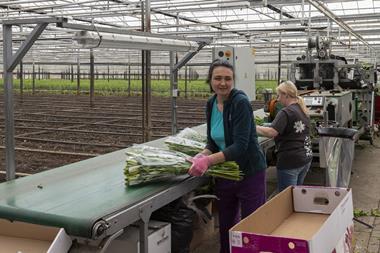Pioneer in Europe in the area of sustainable and responsible investment (SRI), Dexia Asset Management intends to best fulfil the demands of investors who are increasingly sensitive to the challenges of sustainable development. In this respect, the dedicated SRI team was recently strengthened significantly.
Over the past 10 years, Dexia Asset Management has been perceived in Europe’s world of finance as a leader in sustainable management and it continues to hold this position.
Hugo Lasat, chairman of the Dexia Asset Management Executive Board, says: “The market for socially responsible investment is soaring. From December 2003 to March 2005, SRI fund assets in Europe increased by 35% against a 16% increase for the global fund market. Over the same timespan, the assets of our sustainable funds increased by 46%.
“Dexia Asset Management is ahead of the pack. At the end of June 2005, our market share in SRI funds in Europe was at 7.5%, plus the outstanding amounts of numerous dedicated SRI mandates. Our SRI under management amounts to 12% of our total assets. Hence, at a European level, we still rank first with more than €10.8bn under SRI management at the end of September 2005, including €2.6bn under sustainable management and €8.2bn managed in respect of ILO standards.
“If the growth of our sustainable management funds is significant, that of tailor-made SRI management is even stronger. Many long-term investors like pension funds or insurance companies are starting to go for SRI. The growth potential is significant in the near future.”
Why did you decide to strengthen the dedicated SRI team?
HL: “We are convinced that integrating criteria linked to corporate social responsibility or ‘sustainability’ in asset management favours generating long-term added-value. From the beginning of SRI - in 1996 - we set up a dedicated management team and we developed our first funds. The constant strengthening of our team allowed us to widen our SRI product range and carry out extensive research into the relationship between extra-financial criteria and financial performance.
“Following a strategic reflection, Dexia Asset Management chose to strengthen its commitment anew by recruiting a team of seven analysts specialising in sustainability, working together with the in-house financial analysts and eight dedicated SRI managers. With the trend being generally towards greater transparency, analysing corporate social responsibility has become everybody’s business: those companies wishing to have a long-term strategy, those assessors getting together or specialising, and those investors who care for the risks they are exposed to with their portfolios. For Dexia Asset Management the idea is now to master fully all stages of sustainable management and to reaffirm the aim of its investment process, ie, double alpha, financial as well as sustainable. Therefore a methodology of sustainability has been implemented in order to identify – sector by sector – what the long-term risks and opportunities are.”
What are the concrete steps for an internal sustainability analysis?
Wim Vermeir, Global Head of Sustainable and Responsible Investments says: “Our sustainability analysis is based upon assessing relations between a company and all its stakeholders – shareholders, customers, employees, suppliers, environment and society – in order to identify early indicators of financial profitability in each sector. For example, a company investing in the training of its employees and in its partnerships with suppliers creates opportunities to innovate; a safety policy for production sites that minimises the risk of accidents which otherwise might have a highly negative impact on the company’s image and goodwill.
“Our sustainability analysis is in two steps: first, analysts provide sector studies in order to target the sustainability-related issues within each sector and to assess their relative importance vis-à-vis corporate risks and opportunities.
“Secondly, each company is analysed systematically to understand how it integrates the relevant issues identified in the sector studies. Using many external sources of information we assess the transparency of the company with regard to the identified issues, the strategy and resources deployed to manage the risk and opportunities linked to each challenge and we look at the performances of the policies implemented.
“Then companies are ranked to determine the ones that are leaders and best-in-class. In each sector, another category of companies called ‘runners-up’ is identified; those companies are often small, score within the average band and make rapid progress in terms of social responsibility. All these selected companies define the universe of eligible equities for investment, which is the starting point for our well-established financial management.”
What is the interest of this development for investors?
WV: “Internalising sustainability analysis also brings significant flexibility to help investors move towards SRI. Neither our investment philosophy, nor our management processes are changing. But we have acquired an important internal critical capacity that allows us to understand better the interactions between sustainability criteria and financial characteristics in order to provide adequate answers to the constraints and preferences of investors. In addition, the internal sustainability analysis enables the ‘extra-financial’ selection to be refined in terms of risks and opportunities, so that the performance of sustainable management portfolios benefits from this additional long-term analysis.”
Dexia AM – Dutch branch
Lichtenauerlaan 102-120
3062 – ME Rotterdam
Telephone: +31 10 204 56 51
E-mail: investor.support@dexia-am.com
What do we mean by SRI?
For Dexia Asset Management, SRI emphasises sustainable management, which integrates within its classic management a specific analysis of long-term risks and opportunities. This analysis in addition to the traditional analysis relates to corporate social responsibility or ‘sustainability’.
This concept is distinguished from other SRI approaches, such as ethical management resting on personal convictions or solidarity products with a charitable element.












